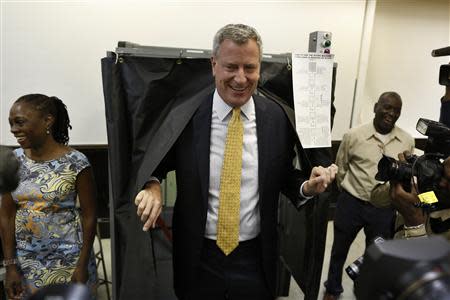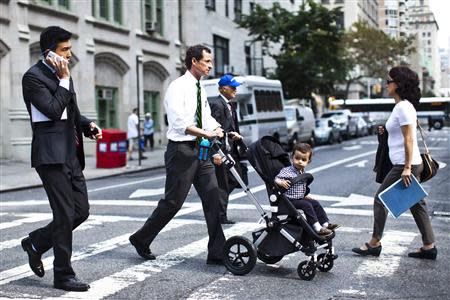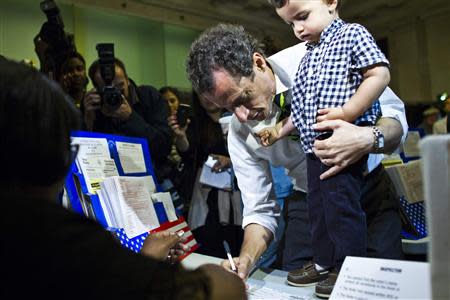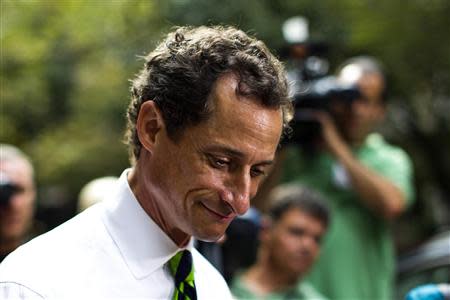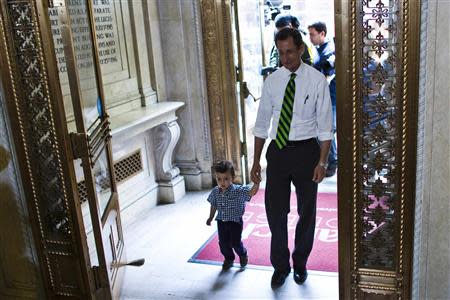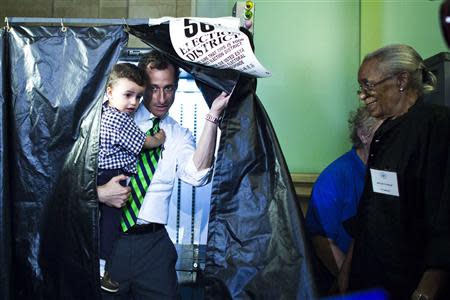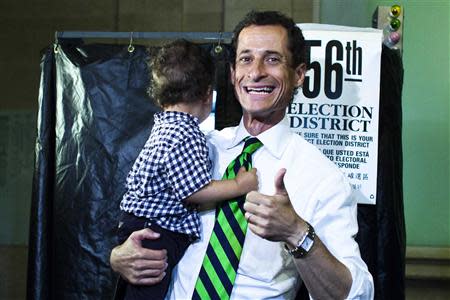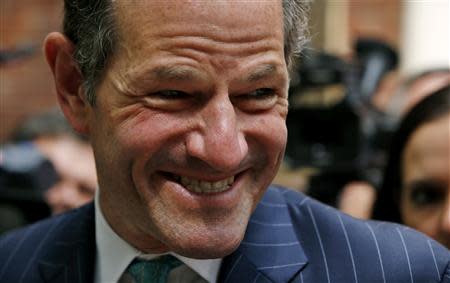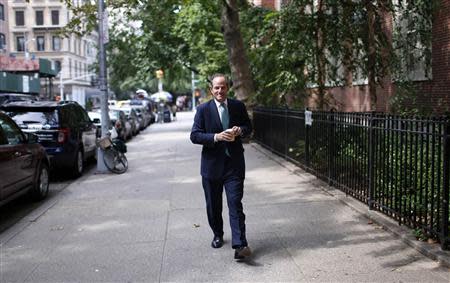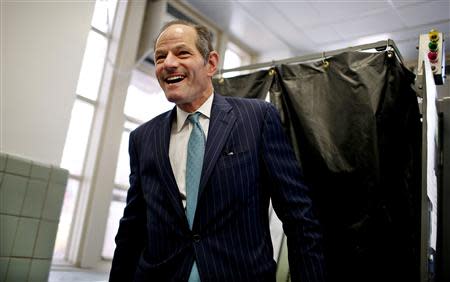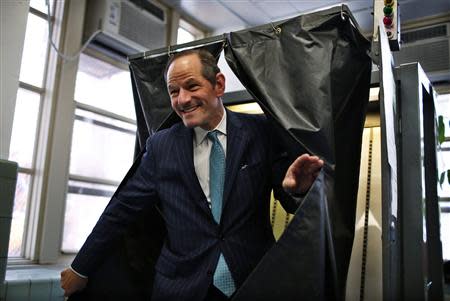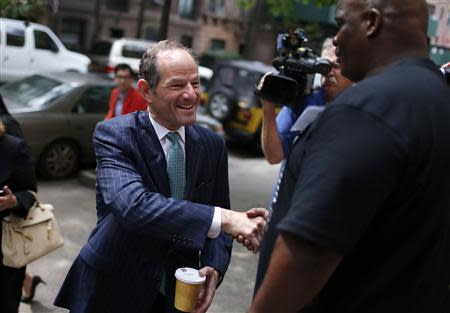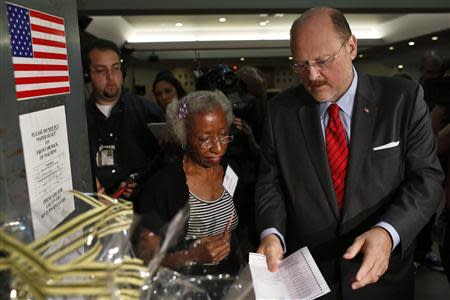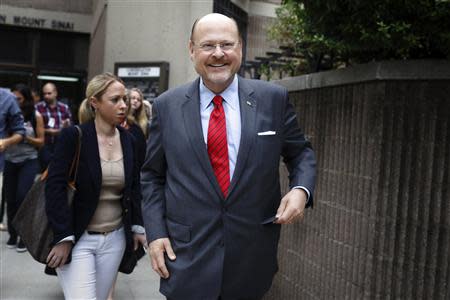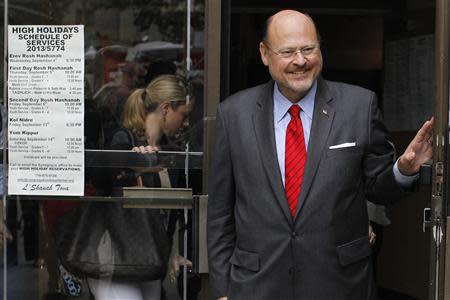Lively New York mayoral primary race goes down to the wire
By Edith Honan and Francesca Trianni NEW YORK (Reuters) - New York City voters wrestled with antiquated voting machines and emergency ballots on Tuesday in an election to choose candidates hoping to succeed three-term Mayor Michael Bloomberg in running the most populous city in the United States. On the Democratic side, Public Advocate Bill de Blasio leads opinion polls over City Council Speaker Christine Quinn and former city comptroller Bill Thompson in a lively primary that has featured a crowded field of candidates, a scandal over lewd pictures and a heated debate over police tactics. De Blasio is one of the more liberal candidates on the ballot, while Quinn, who would be the city's first female and openly gay mayor, is seen as most likely to follow Bloomberg's moderate policies. Thompson lost the mayor's race in 2009 to Bloomberg, who has been mayor since January 2002 and is leaving office due to term limits. De Blasio and Quinn each held the lead in polls at one time or another during the topsy-turvy Democratic primary race. As did former U.S. congressman Anthony Weiner, who saw his lead vanish after news that his penchant for sending women lewd pictures of himself had not ended. If no candidate wins at least 40 percent of the vote in Tuesday's election, there will be a run-off on October 1. On the quieter Republican side - Democrats vastly outnumber Republicans in the city of 8.3 million people - the former head of the city's mass transit agency, Joe Lhota, has led in opinion polls. Lhota, who was former Mayor Rudy Giuliani's budget director and later his deputy mayor for operations, is facing grocery chain billionaire businessman John Catsimatidis. Polls were due to close at 9 p.m. EDT (0100 GMT) Voter Marvin Pasternaq, an accountant from Queens, said he was still undecided and planned to take full advantage of the late closing. "They all talk about jobs, housing and education, because that's what the public wants to hear about," he said. "But after Election Day, who's going to deliver?" BULKY VOTING MACHINES At polling stations, voters griped about bulky 1960s-era mechanical voting machines that were breaking down and forcing the use of emergency ballots. One voter who had to use an emergency ballot was Lhota, when the lever machine broke at his Brooklyn polling station. "We're going back to paper ballot? Are you kidding?" Lhota said before handing out cookies to poll workers. The mechanical voting machines were retired after the 2009 election in favor of an electronic system with optical scanners. The state government, however, approved use of the old machines for the primary after the newer system caused delays in the vote count. The city Board of Elections said any voter facing a non-functioning machine could use an emergency ballot and said the lever machines had a 4.3 percent failure rate when last used. Two opinion polls on Monday showed de Blasio leading among the Democrats - 39 percent in a Quinnipiac survey and 36 percent in an NBC 4 New York/Wall Street Journal/Marist poll. "We expect a runoff, we're ready for a runoff, and we've been planning all along for it," de Blasio said when he voted. In an interview with New York magazine, Bloomberg effectively threw his support behind Quinn and took issue with the prominent role de Blasio's mixed-race family played in the campaign. He suggested the strategy was meant to fuel "class warfare" and was potentially "racist." Chris Carr, 62, a Manhattan hairdresser said she agreed with that assessment by Bloomberg and supported Quinn. "I voted for her because she is a woman and she is a lesbian," she said. "Those are the things I care about." Bridget Morgan, 70, a former banker from Queens, said she supported Thompson because "he knows about money and about the law." "I would have voted for Quinn, but she's anti-dogs and pro-landlords," she said, "and you can't have that in New York." A local animal advocacy group has criticized Quinn, who has two rescued dogs, for her support of the carriage horse business in Central Park and accused her of opposing pro-animal measures. Weiner, polling in fourth place, is fighting for his political life. Resigning from Congress in 2011 after admitting he sent lewd pictures of himself to women he met online and lied about it, he had asked voters to give him a second chance. He quickly moved to the lead, but his campaign collapsed following revelations he had sent more lewd photographs online. (Additional reporting by Hilary Russ; Editing by Ellen Wulfhorst; and Grant McCool)
